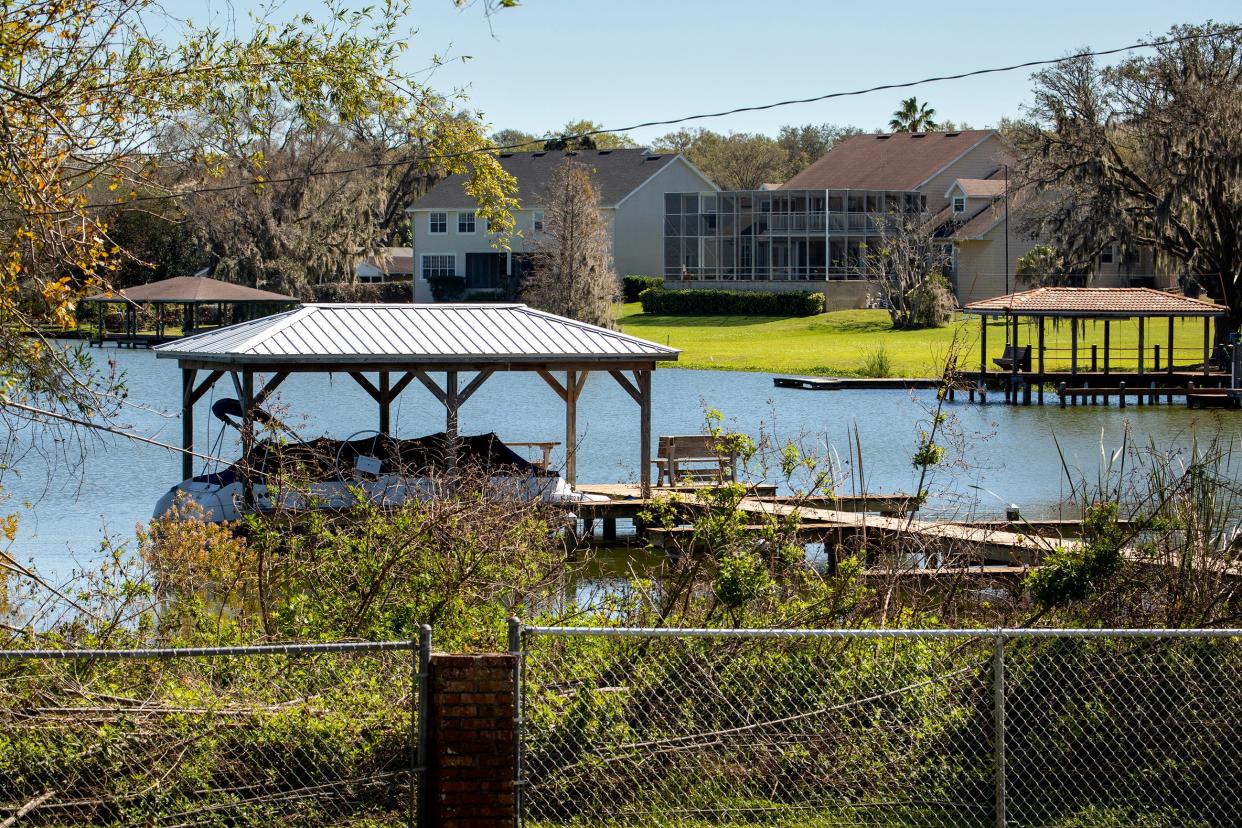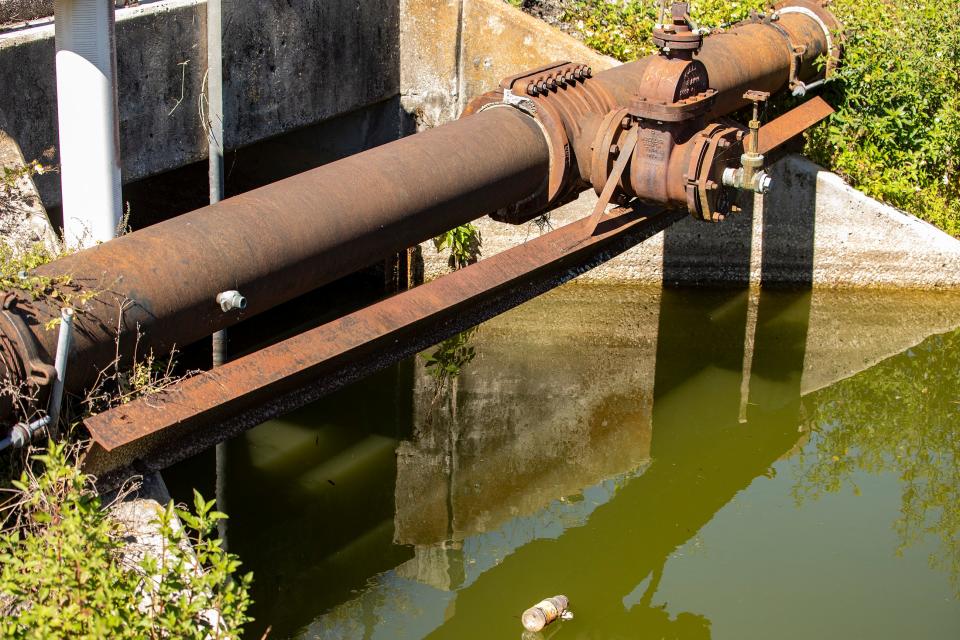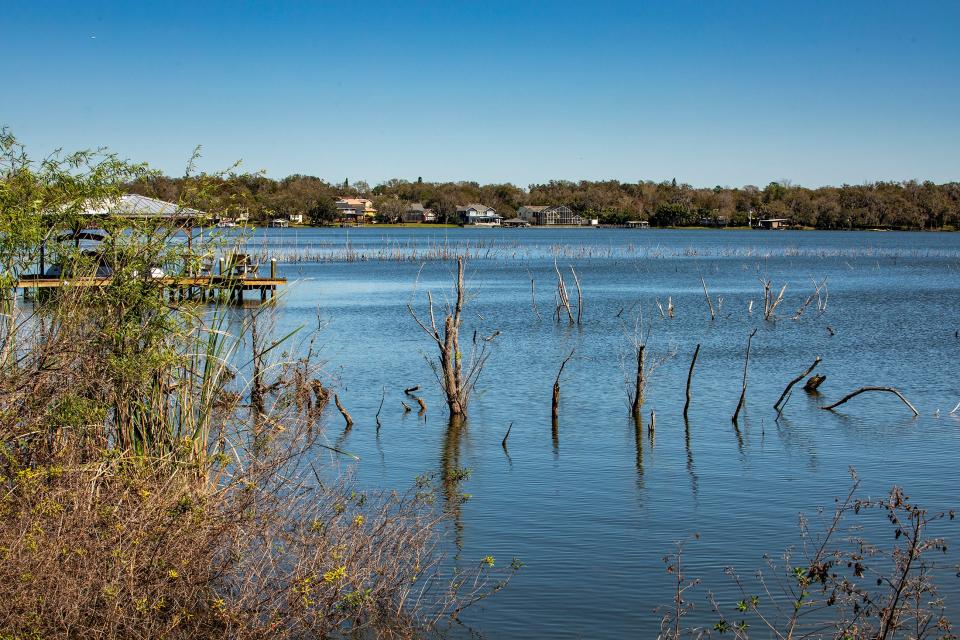Health department issues warning about algae blooms in Lakeland's Scott Lake

Blue-green algae has been detected in Scott Lake, prompting a warning from health officials to avoid contact with the lake’s water in areas where a bloom is visible.
The Florida Department of Health in Polk County issued a health alert late Friday afternoon, based on a sample taken in the lake on Feb. 7. The warning said the public should be cautious about exposure to the water near the Fitzgerald Road boat ramp on the west end of the lake.
Blue-green algae are bacteria common in Florida's freshwater environments, the release said. Blooms occur when a rapid growth of algae causes an accumulation of individual cells, which turn the water green and often produce floating mats that emit unpleasant odors. Many types of the algae produce toxins, the Health Department said in the news release.

Polk's political sceneOpenings appear in 2024 as Public Defender, Polk County Property Appraiser won't run again
To aid in recruitmentLakeland police to relax tattoo policy
Former Asana RanchDeveloper and residents make cases for and against development on Hatchineha Road
Sunny days, warm water temperatures, still conditions and excess nutrients – such as runoff from fertilizer – can contribute to blooms. While blooms can appear year-round, they are more frequent in summer and fall the release said.
Scott Lake covers 285 across just south of the Lakeland city limits. It is surrounded by some of the highest-priced houses in Polk County and has no public access.
The Health Department warned residents not to drink, swim, wade, use personal watercraft, water ski or boat in waters with visible blooms. Pets should be kept away from the areas, the release said.
If you have contact with algae or with discolored or foul-smelling water, you should wash your skin and clothing with soap and water, the release said.
Do not cook or clean dishes with water contaminated by algae blooms, the warning said. Boiling the water will not eliminate the toxins.
The dominant toxin in the sample taken from Scott Lake on Feb. 7 was Microcystis aeruginosa, the most common toxic bloom in fresh water, according to information posted by the Florida Department of Environmental Protection.
The agency obtained samples from Scott Lake after satellite imagery indicated a possible algal bloom, DEP spokesperson Brian Humphreys said in an email. The sample detected a trace level of 0.56 parts per billion of microcystins.
DEP will monitor Scott Lake and retest water samples in the coming weeks, Humphreys said. The results will be posted on the agency's dashboard (http://floridadep.gov/AlgalBloom).

The dashboard shows that lower levels of algae also have been detected recently in other lakes in Polk County, including Lake Hollingsworth. The department invites reports of potential algal blooms by calling its hotline at 855-305-3903 or at ReportAlgalBloom.com.
The Department of Health issued a caution in January for Tiger Lake in eastern Polk County, based on the presence of algae.
Gary White can be reached at gary.white@theledger.com or 863-802-7518. Follow on Twitter @garywhite13.
This article originally appeared on The Ledger: Health department warns about algae blooms in Lakeland's Scott Lake

